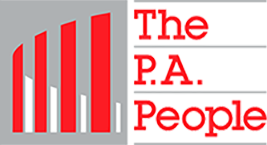THE GAFFA TAPES
21 Aug 2024
ALL OVER THE DIAL
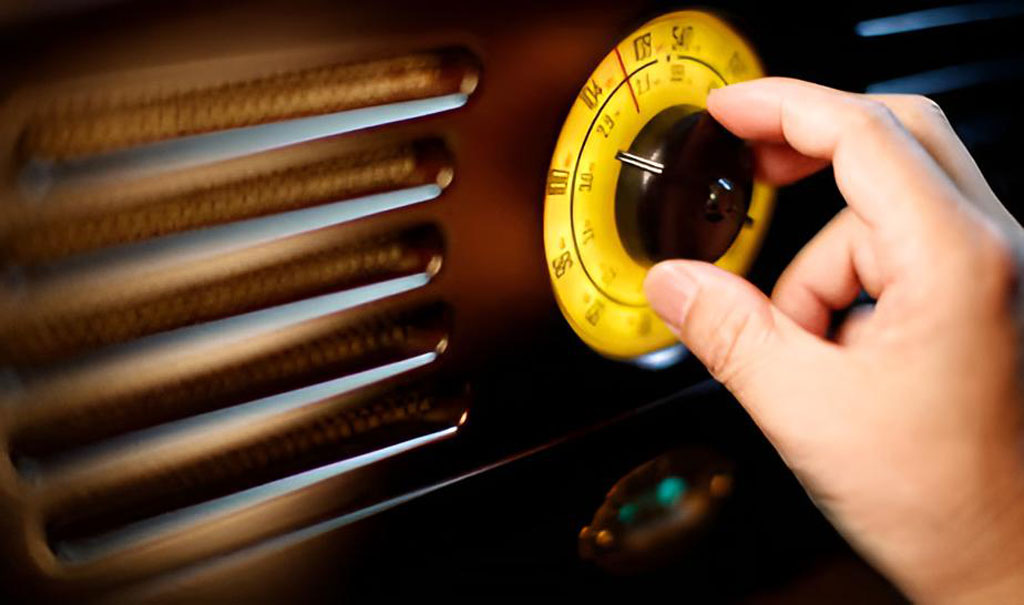
Subscribe to CX E-News
Snippets from the archives of a bygone era
When Marilyn Monroe was asked if she had nothing on during her 1949 calendar shoot, she replied, “It’s not true that I had nothing on; I had the radio on.” That era from 1925 to 1950 was deemed the Golden Age of Radio in America. In Australia, commercial radio changed dramatically in the 1960s as rock ‘n’ roll and contemporary music evolved at breakneck speed, along with the madcap comedy of presenters such as 2SM’s Ian MacRae in the 1960s and 1970s, culminating in the hilarity of Triple M’s Doug Mulray in the 1980s and 1990s. This was the era when I was bitten by the radio bug, and, for me, these were the golden years of radio, unlike the modern era where all that glitters is not gold.
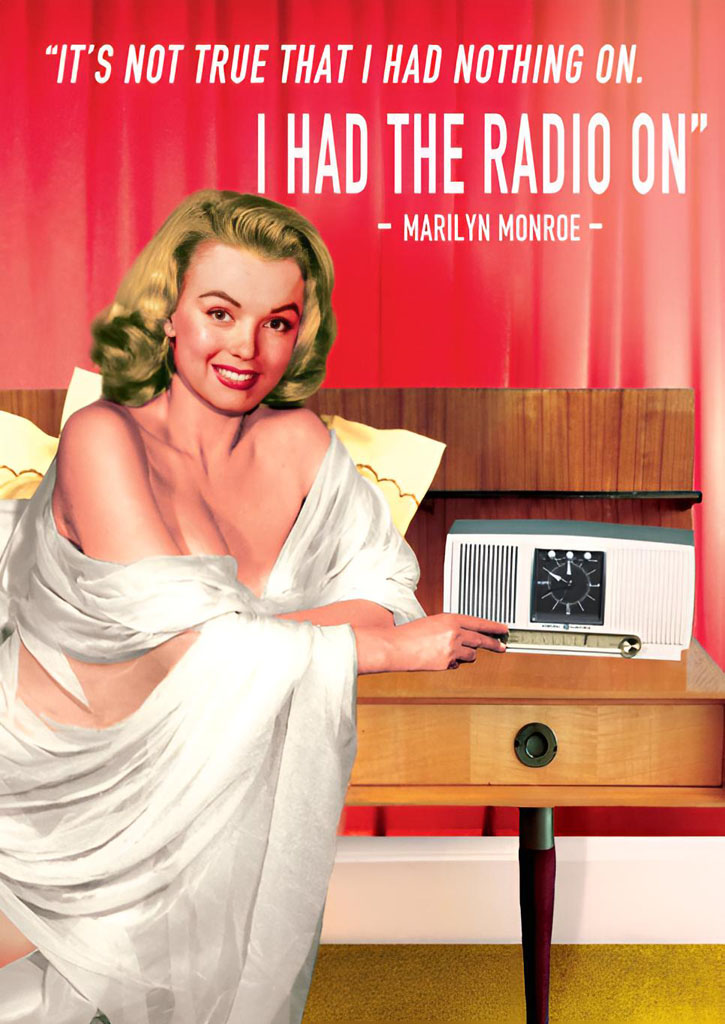
The great solo DJs from the 60s to the 90s have annoyingly morphed into teams of two and even three or more modern-day presenters, all laughing at their own boring talking points and unfunny insider jokes and presenting a repertoire of auto-tuned and frequently tuneless music, often accompanied by antiquated quiz shows and meaningless chit-chat. Of course, this is all sour grapes from someone who couldn’t get a start in commercial radio. But you’d have to have the bubonic plague not to get a start in community radio.
My entry into the world of community radio announcing was partially a tribute to those retro radio days, partially to satirise today’s radio, and partially to satirise a world gone mad. Radio is basically music, news, and talking points, and it’s hard to say which one is in the worst decline, but talking points must surely be the hot contender. Just recently, I suffered through a tedious and protracted radio monologue from a jock on a local commercial radio station whose prime talking point questioned why people didn’t say ‘please’ often enough. Riveting stuff! Another talking point that droned on painfully was, “Would you eat off a public barbecue?”
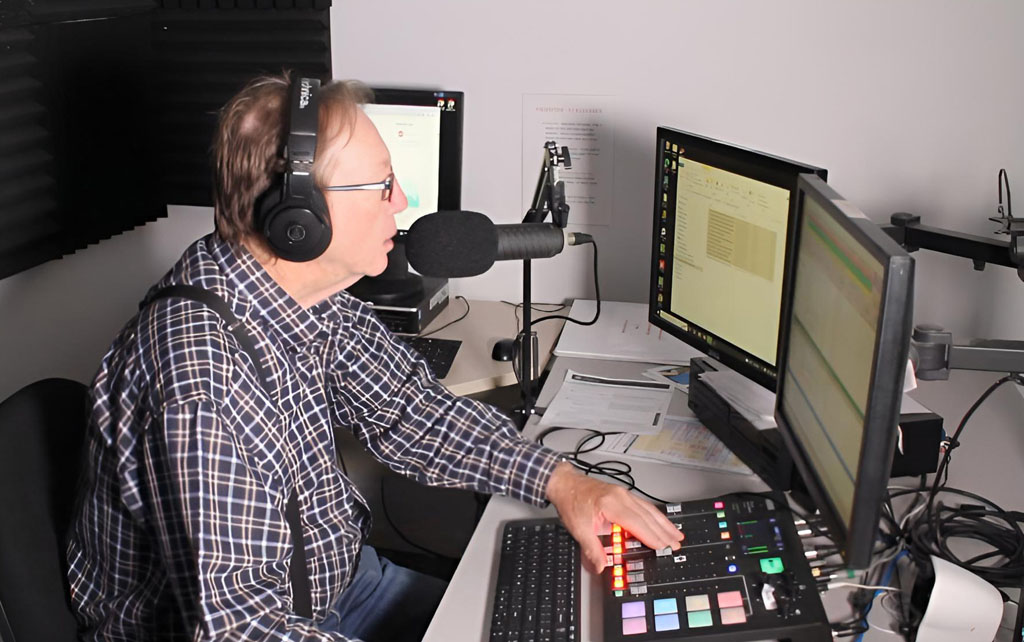
There was no audition or air-check required at the local community radio station when I applied in 2016 for a position as a radio presenter. After all, this was a station that still had one of its octogenarian DJs carting in a turntable and cases filled with vinyl LP records to play on-air, even though the practice had been phased out some 35 years earlier. I was warned to stay away from political comment and even political satire, which the station wrongly thought was banned under the ACMA Codes of Practice, Section 3.3. However, the last line in the long list of taboos in the code cites an exception for anything in the ‘legitimate context of a humorous, satirical, or dramatic work.’
My fellow announcer, Soundbyte Sal, was an AI-generated voiceover. Sal had even more boring talking points than her contemporaries and an even more annoying laugh. Sal would revel in things like a report about two chocoholics who hijacked a truckload of Mars Bars, and she’d always end with her annoying, repetitive, digitised laugh. I was generally regarded as a loose cannon at the station, and I was closely monitored.
Enforcing the station’s mistaken belief that political humour was banned, only a month or so into the gig, a fellow broadcaster burst into my on-air studio to protest what was a very tepid quip I made about the then Prime Minister, Malcolm Turnbull. I was, at the time, poking fun at my own name, which I disliked as a child, thinking it not to be all that macho. This is something that Monty Python picked up on in The Life of Brian. I pointed out that the saving grace for disliking my own name was when I met a fellow kindergarten classmate who stuttered, and when he announced his name as Malcolm, it sounded like he was throwing up. I pointed out that, in spite of the fact that Malcolm was not too bright, we did become friends. I then added the falsehood, “I never dreamed he would become Prime Minister.” Alas, that spelled the demise of my first community radio spot.
After a hiatus of some five years and not having recovered from the radio bug’s bite, I joined Myall Coast Radio, where I was given the full support of the station manager and all of the staff, and there was no ban on comedy. But finding your voice on radio is not as easy as it sounds. As 5th century BC philosopher Socrates said, “Know thyself,” and since I got bored if I wasn’t clowning around on-air, I decided to continue in that vein.
All the presenters at Myall Coast Radio were given free rein to source their desired music genres; mine included contemporary and rock and pop songs from all eras, including the current era. Female artists such as Ariana Grande, Rihanna, Taylor Swift, and Katy Perry dominated the list of modern-day artists and also seemed to highlight the shortage of A-list male singers. My three-hour shifts, which contained about a dozen songs per hour, were intermingled with two or three comedy spoofs that were pre-recorded in my home studio using a DAW, which I also used for levelling the songs to -16 LUFS (loudness units full scale). The trick was to pretend that the recorded segments, mixed on my little Yamaha AG06, were actually live; so to match the sound of the station’s Rode Procaster dynamic microphone, I dusted off my vintage AKG D330 BT dynamic microphone, which features bass and treble frequency contour switching.
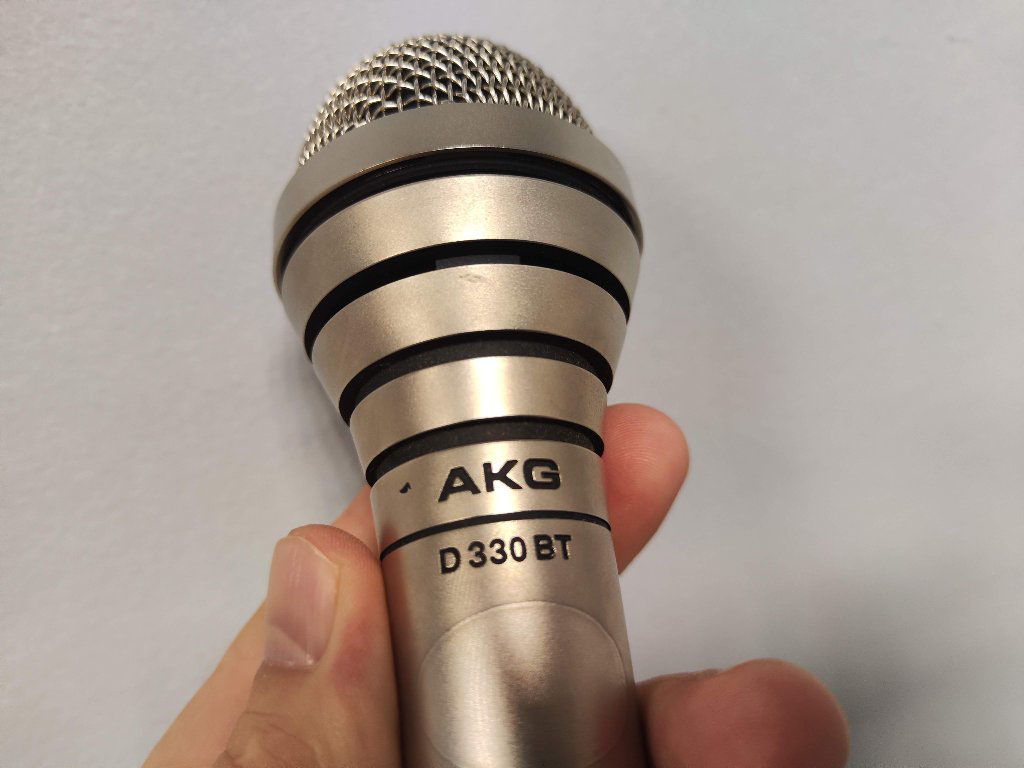
The station used a RodeCaster Pro mixer, which Rode markets as a podcasting mixer, but it’s also great for broadcasting. One feature that a lot of podcasting mixers leave out that Rode includes is the ‘listen’ or ‘solo’ button.
This is essential for live broadcasting, as you can have an off-air rehearsal of what you’re about to say live, or you can clear your throat, test your voice, et cetera. I used this button extensively. The RodeCaster Pro also has a record feature using an SD card; however, all radio stations by law have to record logs, so I just downloaded the logs of my shows to analyse what worked and what didn’t work.
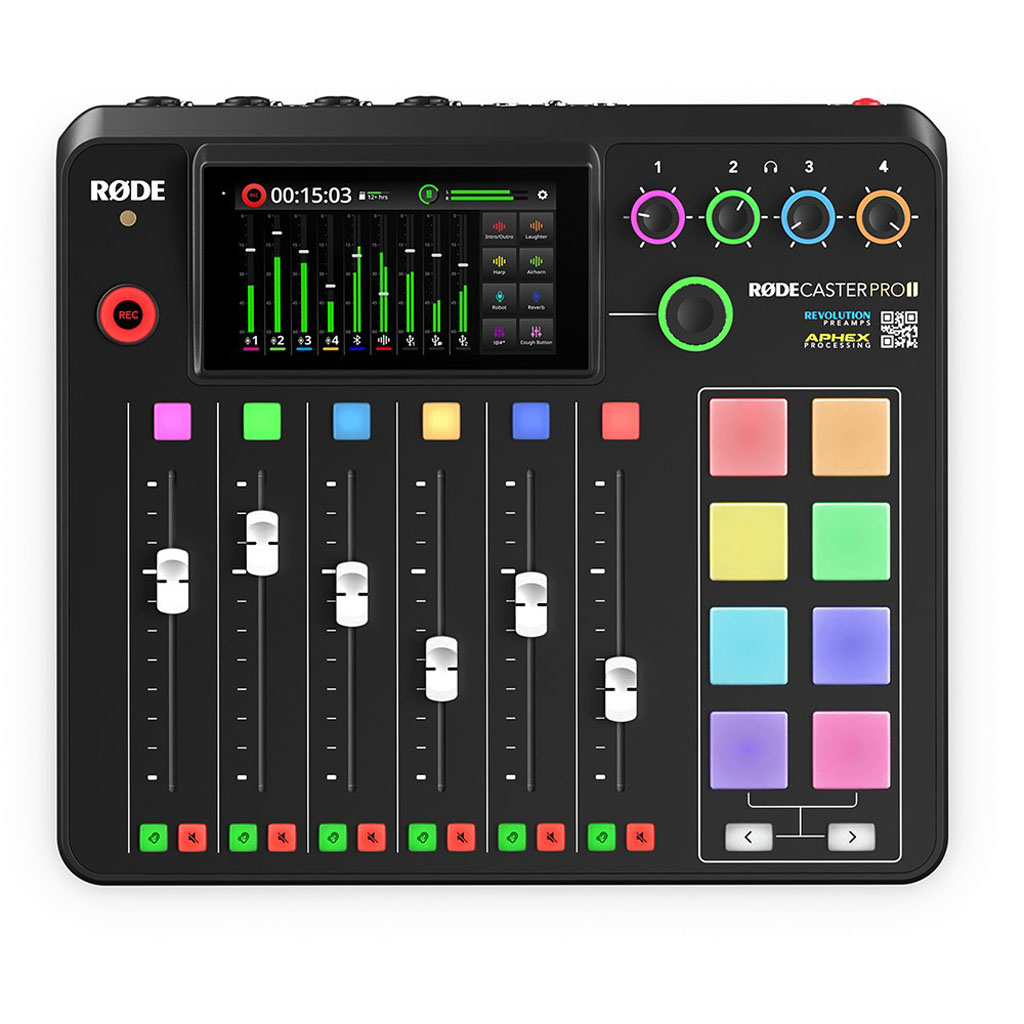
All the phone-ins for my ridiculous quiz shows and competitions were bogus voices created on my DAW by raising and lowering my voice pitch and using a phone filter. ‘No Prizes for Guessing’ incorporated a ‘secret sound’, which was always something blatantly obvious, like ice cubes falling into a glass or a beer can popping. Phone-in contestants would then offer senseless guesses like, “Is it a diesel locomotive?” When one of the phonies would eventually guess the secret sound and ask for their prize, they would be reminded of the name of the game, ‘No Prizes for Guessing.’ There was also Masterquiz, which locked contestants into a single category like Australian Bushrangers or Popular Artists of the 50s, where contestants would all answer either Ned Kelly or Elvis Presley to every question. And, of course, I had my own boring talking points, where I’d call someone for a social or political comment and often end up getting Fidel Castro or even the Fuhrer himself on the line.
Late in 2023, the station manager of Myall Coast Radio had to severely scale back his commitment because of health problems, which left a bit of a vacuum. The studio also had to relocate further from my home because of rental problems. It was a time when I had a number of mounting family commitments to contend with, and when the other shoe finally dropped, I realised that preparing a comedy show for radio had become very draining. You have to be both fresh and topical when you are playing to virtually the same audiences for every broadcast, unlike a stand-up comic who moves from venue to venue and can rehash the same material over and over.
My last show was December 23, 2023. I wished my handful of listeners a Merry Christmas while informing them of the new viral threat to the world, MERS (Middle East respiratory syndrome), a virus linked to dromedary camels. I played the audio of a sick camel to my listeners, imploring them not to take their sick camels to Christmas parties, and I bid my last farewell.
I received two great accolades, which are treasured memories, from the station manager during my 16-month sojourn at the station.
The first, only a month after I had started, was, “You’re different.” Some 12 months later, this was augmented to, “You’re shocking!”
Subscribe
Published monthly since 1991, our famous AV industry magazine is free for download or pay for print. Subscribers also receive CX News, our free weekly email with the latest industry news and jobs.





